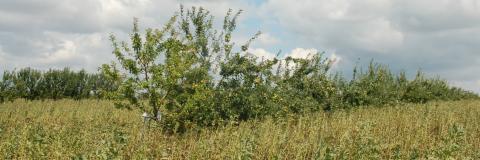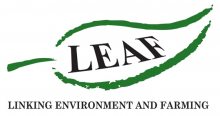Benefits that can come with agroforestry are well-known, including the ability of trees to boost soil health, improve water flows and quality, increase wildlife, support livestock welfare, enhance farming productivity and mitigate climate change. A range of drivers, from policy, farmers, research, NGOs and communities, are working together to generate more momentum towards further use of agroforestry as a tool for farmers and landowners to farm more productively and for the planet.
LEAF will explore how agroforestry could be delivered at scale and how practical, economic and cultural factors across the UK farming landscape can influence this.
They will be joined by guest speaker, James Ramskir-Gardiner, National Agroforestry Advisor at Forestry Commission.
Register HERE



